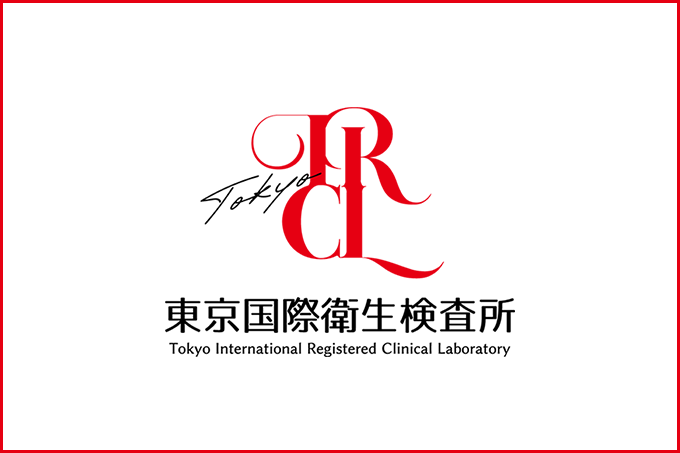法科学鑑定研究所は認証を受けた遺伝子検査所です

【東京国際衛生検査所】
・衛生検査所の名称:東京国際衛生検査所
・英文名称:Tokyo International Registered Clinical Laboratory
・登録番号:第100号
※「Registered Clinical Laboratory」は「登録臨床検査所」を意味します。
【登録衛生検査所のご案内】
登録衛生検査所「東京国際衛生検査所」 は、より高度で信頼性の高い検査サービスを提供し、医療機関からの検査受任など多くの分野においてさらなる貢献を目指します。AIなど最新の技術と専門知識を駆使し、正確な検査結果を迅速に提供を目指します。
【衛生検査所登録の意義と必要性】
衛生検査所は、「臨床検査技師等に関する法律」に基づき、病気の診断や健康診断のために採取された検体を検査する施設です。この施設を開設するには、構造設備や管理組織、検体検査の精度確保の方法が厚生労働省令で定める基準に適合しているかどうか、保健所の審査を受ける必要があります。その後、所在地の都道府県知事による登録を経て、正式に運営が可能となります。
一方で、現在日本国内で提供されている消費者向け検査サービスの多くは、登録衛生検査所ではなく、審査を受けずに開設可能な簡易的な検査室で実施されています。その結果、監視体制や精度管理が不十分な場合があり、質の低い検査サービスが流通するリスクが指摘されています。さらに、国内に検査所を設けず、海外の検査機関に委託するブローカー業者も存在し、検査の品質や結果の信頼性に関する懸念が高まっています。
近年、遺伝子検査をはじめとする検査サービスは、東南アジアを中心に急速に拡大しています。しかし、各国の規制や品質管理の基準は異なり、安全性の確保が重要な課題となっています。こうした状況において、登録衛生検査所の基準に基づく適切な管理を行うことは、日本製検査サービスの信頼性を担保する上で極めて有用です。
私たち法科学鑑定研究所では、正確で信頼性の高い検査結果を提供することを最優先に考え、更なる検査技術の向上にも努めています。引き続き、皆様の信頼に応えられるよう尽力してまいります。
The Institute of Forensic Science is a certified genetic testing laboratory.
【Tokyo International Registered Clinical Laboratory】
・Name of the clinical laboratory: Tokyo International Registered Clinical Laboratory
・English name: Tokyo International Registered Clinical Laboratory
・Registration number: No. 100
※ “Registered Clinical Laboratory” means “Registered Clinical Laboratory”.
【Guide to Registered Clinical Laboratories】
Registered Sanitation Inspection Center “Tokyo International Sanitation Inspection Center” aims to provide more advanced and reliable inspection services and to contribute further in many fields, such as accepting inspection requests from medical institutions. We aim to provide accurate inspection results quickly by making full use of the latest technology, such as AI, and specialized knowledge.
Significance and necessity of registration as a medical laboratory
Medical laboratories are facilities that test specimens collected for the purposes of diagnosing diseases and conducting health checks, based on the “Act on Medical Technologists, etc.” In order to establish such a facility, it is necessary to undergo an inspection by the local public health center to determine whether the structure and equipment, management organization, and methods for ensuring the accuracy of specimen testing meet the standards stipulated by the Ministry of Health, Labour and Welfare. After that, the facility can be officially operated after being registered by the prefectural governor of the location.
On the other hand, many of the consumer testing services currently being offered in Japan are not being provided by registered medical laboratories, but rather by simple testing facilities that can be set up without undergoing any kind of inspection. As a result, there are concerns that there may be insufficient monitoring and quality control systems in place, and that there is a risk of low-quality testing services being distributed. Furthermore, there are also brokers who do not set up testing facilities in Japan, but instead outsource to overseas testing institutions, and concerns are growing about the quality of testing and the reliability of results.
In recent years, testing services, including genetic testing, have been expanding rapidly, particularly in Southeast Asia. However, regulations and quality control standards differ from country to country, and ensuring safety is an important issue. In this situation, appropriate management based on the standards of registered medical laboratories is extremely useful for ensuring the reliability of Japanese testing services.
At the Forensic Science Laboratory, we consider providing accurate and highly reliable test results to be our top priority, and we are also working to further improve our testing technology. We will continue to do our utmost to live up to your trust.



